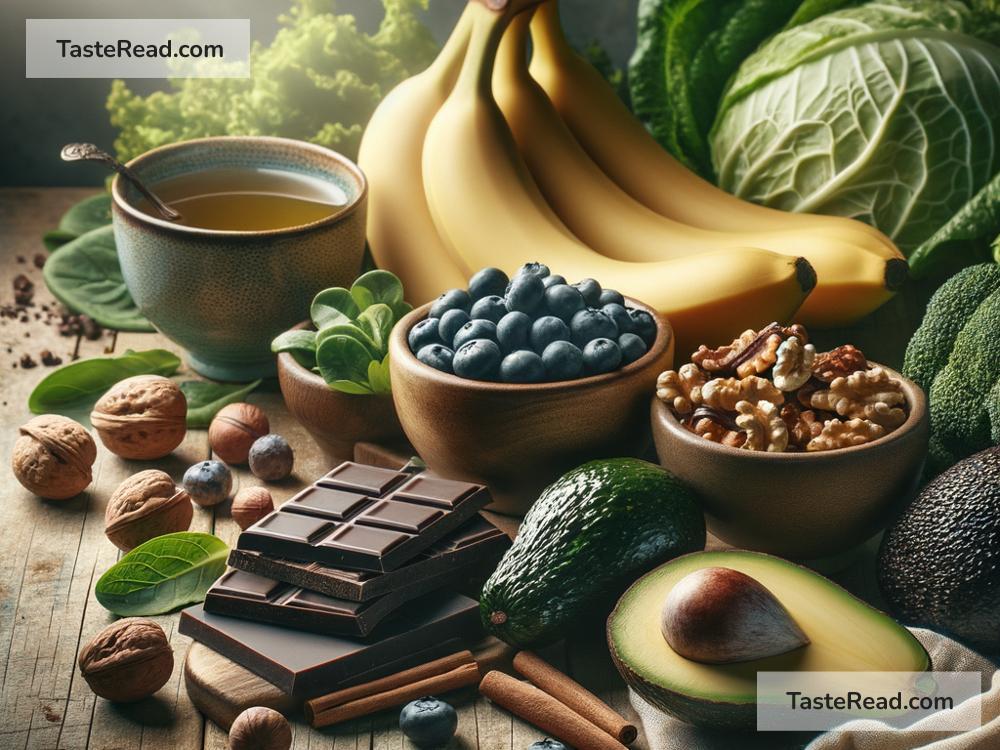Foods for Anxiety Management: Simple Steps to Eat Your Way to Calm
Anxiety can feel overwhelming at times—a racing heart, sweaty palms, the inability to focus—it’s something many of us have experienced. While there isn’t a magic cure for anxiety, there are steps that can help, including eating certain foods that support mental health. Science shows that what we eat can affect how we feel, and calming the mind often starts with nourishing the body. If anxiety is something you’re struggling with, try introducing these stress-busting foods into your diet. They’re simple, healthy, and could help you feel more grounded.
1. Start Your Day with Oats
Oats are a comforting food and a great source of complex carbohydrates, meaning they release energy slowly throughout the day. When your blood sugar levels stay steady, your mood is less likely to swing up and down. Oats also help produce serotonin, known as the “feel-good” chemical in the brain. Start your morning with oatmeal paired with fruits or nuts to give your brain and body a calming boost.
2. Go Nuts for Almonds and Walnuts
Nuts, particularly almonds and walnuts, are rich in magnesium, a mineral known to support relaxation. Magnesium helps regulate brain chemicals related to mood and aids in reducing muscle tension—something that can feel tight when you’re anxious. Walnuts also contain omega-3 fatty acids, which help with brain health and reduce inflammation linked to anxiety. A small handful of nuts as a snack can go a long way.
3. Dark Chocolate: A Sweet Way to Soothe
Good news for chocolate lovers! Dark chocolate is packed with flavonoids, antioxidants that are known to help reduce stress. Eating dark chocolate (aim for a cocoa content of 70% or higher) can improve blood flow to the brain and lower stress hormones like cortisol. A small square or two can be a delicious way to calm your nerves—just remember not to go overboard, as too much sugar can have the opposite effect.
4. Get Friendly with Fermented Foods
Your gut health plays a surprisingly big role in your mental health. Fermented foods like yogurt, kimchi, sauerkraut, and kefir are rich in probiotics, which are good bacteria for your digestive system. These probiotics help improve gut health and can positively influence serotonin production, which is linked to emotional well-being. A healthier gut often means a calmer mind.
5. Turn to Fatty Fish for Omega-3s
Fatty fish such as salmon, sardines, mackerel, and trout are rich in omega-3 fatty acids, which are essential for brain health. Omega-3s reduce inflammation and improve communication between brain cells, which can help ease symptoms of anxiety. If you don’t like fish, you can try a fish oil supplement or plant-based sources like chia seeds, flaxseeds, and walnuts.
6. Leafy Greens for Mental Balance
Leafy greens like spinach, kale, and Swiss chard offer powerful nutrients for fighting anxiety, including magnesium and antioxidants. Magnesium in particular helps calm overactive nerves and supports muscle relaxation. These greens are easy to fit into meals—blend them into smoothies, toss them into salads, or sauté them for a quick side dish.
7. Berries: Tiny Stress-Fighters
Berries like blueberries, strawberries, and blackberries are bursting with antioxidants that fight oxidative stress in the body. Oxidative stress happens when harmful molecules build up in your body, which can contribute to anxiety. Snack on fresh berries, mix them into your yogurt, or turn them into a tasty smoothie to protect your mind and body.
8. Avocados for Healthy Fat
Avocados are not just creamy and delicious—they’re packed with healthy fats and B vitamins that your brain needs to function well. B vitamins, particularly vitamin B6, help produce neurotransmitters like serotonin, which keep your mood stable. Add avocado to toast, salads, or sandwiches for a satisfying dose of calm.
9. Chamomile Tea: Nature’s Relaxer
Okay, technically not a food, but chamomile tea is worth mentioning. Chamomile has been used for centuries to help calm the mind and ease anxiety. A warm cup of chamomile tea in the evening can help relax your muscles and prepare your mind for restful sleep. Plus, sipping on tea can feel like a cozy ritual.
10. Whole Grains for Energy and Focus
Whole grains such as quinoa, brown rice, and barley provide complex carbohydrates that fuel your brain and maintain steady blood sugar levels. When you’re feeling stressed, think of whole grains as a way to keep your body balanced. Swap white bread or pasta for whole-grain options to stay energized and focused throughout the day.
A Few Tips for Eating to Reduce Anxiety
While these foods can help manage anxiety, it’s essential to focus on overall balance in your diet. Eat plenty of fresh produce, lean proteins, and healthy fats, and avoid excessive sugar, caffeine, and processed foods, as these can worsen anxiety symptoms. Stay hydrated, too—sometimes dehydration can make feelings of anxiety more pronounced.
It’s also worth exploring mindful eating. Take time to savor each bite, notice the flavors, and appreciate your food. Slowing down while eating can quiet a racing mind and signal your body to relax.
Final Thoughts
What you eat isn’t the whole answer to managing anxiety, but it’s a step that can make a difference. Adding foods rich in magnesium, omega-3s, and antioxidants can help stabilize your mood, improve brain function, and ease stress. Pair good nutrition with other healthy habits like exercise, meditation, and sleep to give your mind and body the tools they need to stay calm and strong. Make small, manageable changes to your diet, and you might find that the right foods help bring calm back into your life, one bite at a time.


